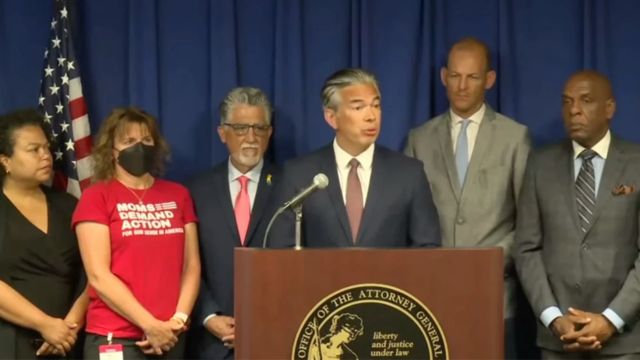The IROCC Controversy: Illinois Law Enforcement and the Struggle for Recognition
Correctional officers and courthouse deputies have been at odds with the state of Illinois for more than a decade over whether retired cops are eligible for special concealed carry pistol permits, according to the ABC 7 I-Team.
Gov. JB Pritzker first said yes and signed a new law that went into effect on January 1, 2023, making all retired law enforcement officers eligible for special permits.
However, the state department in charge of issuing those permits has now declined to execute the law, citing a clash with federal requirements.
The conflict might be determined by a Cook County circuit court judge on Thursday, and many retired police enforcement officers tell the I-Team they are angry that their arguments have not been addressed sooner.
“We’re asking for what we’re legally entitled to the ability to defend ourselves if something happens,” said retired Cook County Sheriff’s Deputy Tom Kush. “After 30 years of qualifying, and everything, I just don’t understand why they think that they can do this.”
Throughout his tenure, Kush delivered eviction notices, orders of protection, and child custody decisions, as well as arresting criminals he claims he has encountered in public since retirement.
“When you’re out at a restaurant with your family, or something like that, you’ll see these guys,” Kush said. “It happened to me twice. And I had to go immediately because I did not want to put my family in that scenario.”
Congress acknowledged the threat to retired law enforcement officers in 2004 when it passed the Law Enforcement Officers Safety Act, or LEOSA.
The statute authorized qualified retired cops to carry concealed guns even in areas where firearms are prohibited.
In Illinois, it’s known as an “Illinois Retired Officer Concealed Carry” or IROCC card.
However, for nearly two decades, Illinois correctional officers and court deputies, including Kush, have not been entitled to this authority.
State officials say that the federal law was not intended to encompass this type of law enforcement.
Legislators here disagree.
“Congress intended that correctional officers and court deputies have this privilege,” said Chicago State Senator Bill Cunningham (D-IL 18th District). “We said, ‘Okay, then we will change the state law.'”
Cunningham accomplished this by writing HB 4667, which received a majority of votes and was signed into law by Gov. Pritzker in 2022.
The law took effect last year.
However, the Illinois Law Enforcement Training and Standards Board (ILETSB), the state organization in charge of permitting, has declined to do so, stating that the retired policemen and deputies are not “qualified law enforcement” under federal rules.
Cunningham stated that no one from the state board has offered to engage with him to improve the text of the present statute.
“I believe they’ve gone rogue,” Cunningham explained. “I think they don’t like this concept and they are finding excuses not to execute the law.”
ILETSB rejected an interview with the I-Team, but stated in an email that Cunningham’s law “does not bring Illinois correctional officers under [federal] requirements.”
“It is the ILETSB’s position that currently, the Federal LEOSA statute and Illinois law conflict concerning whether Illinois correctional officers are qualified law enforcement officers,” according to a press release.
Months after the ILETSB declined to enforce the new rule, a group of retired policemen launched a class-action complaint against it last July, requesting that the state board issue licenses as required by law.
The Illinois Attorney General’s office, which represents ILETSB, has subsequently filed a motion to dismiss the case, and a court will determine whether or not to proceed on Thursday.
“We welcome court guidance,” a representative for the ILETSB said.
When asked about the legal debate over Gov. Pritzker’s state law, his spokesperson Alex Gough told the I-Team, “ILETSB did an in-depth legal analysis of this law and reached the conclusion that it conflicts with the federal [LEOSA]… When federal and state law are in conflict, state agencies and officers must follow federal law.”
“ILETSB looks forward to receiving a ruling from the court on the interpretation of this law and its relation to existing federal law and preemption,” Gough said in a statement.
Kush believes the state’s denial disregards his years of weapons credentials and training.
“I know part of the issue was [the state] wanted everybody to feel safe,” he said. “What about all the policemen who have retired in the last 20 years and are now legally unable to carry a weapon to defend themselves? It is a slap in the face.











